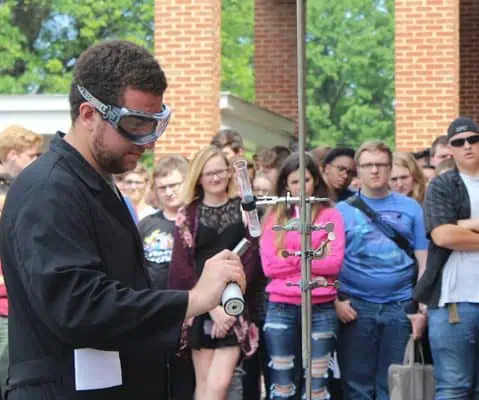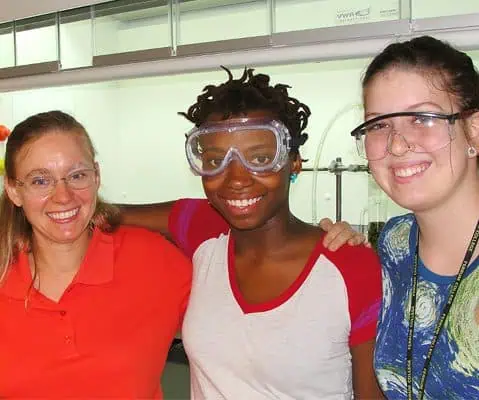
A chemistry major at Ferrum College has the unique opportunity to study in a program where hands-on learning is central. Our students have the opportunities not only to learn about advanced techniques and instrumentation, but to use them in both their classes and in independent research.
Students are prepared for graduate school in any of the fields of chemistry, medicine, or related interdisciplinary areas such as toxicology, environmental engineering, materials science, pharmacology, or agriculture. Some graduate programs in forensic science specify that a bachelor’s degree in chemistry (or other natural science) is required for admission.


You will take a core of chemistry courses covering general chemistry, biochemistry, general physics, and medicinal chemistry.
Medicinal chemistry will introduce students to the fundamental concepts of medicinal chemistry from a bioorganic perspective. The impact of both chemical and biological concepts on drug design and therapeutic applications will also be discussed
Physical chemistry is the analysis and modeling of physical aspects of chemical systems.
A comprehensive, two-semester study of the compounds of carbon using the functional group approach and emphasizing reactions, mechanisms, synthesis, and spectroscopy.
Biochemists focus their work on chemical processes, such as how cells develop or grow, as well as physical principles, such as heredity and disease states in organisms.
Chemical engineers apply the principles of chemistry, biology, physics, and math to solve problems that involve the production or use of chemicals, fuel, drugs, food, and many other products.
Pharmacologists research and test medications and chemical compounds for the development of drug therapies, the prevention of drug interactions, and so forth.
View the catalog for all program courses and degree requirements.



